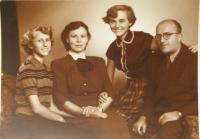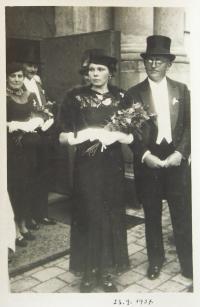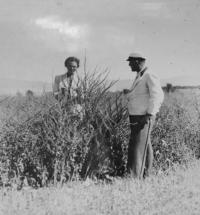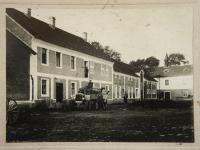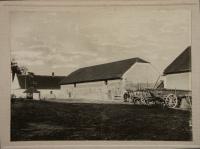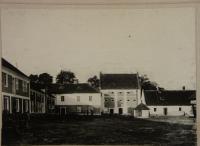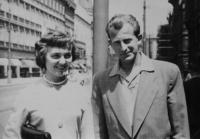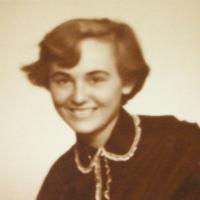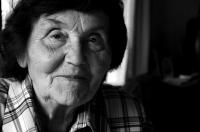It went from bad to worse during all those forty years; in the restitution process, we did not get back a farm, but a ruin

Stáhnout obrázek
Marie Kroftová, née Havlíková, was born on March 10, 1935 in Prague-Podolí. She grew up in Kočvary in the Beroun district. Her father Karel Havlík came from a farmer‘s family and in 1933 he purchased a farm with almost ninety hectares of fields in this village. A total of seven families lived on the farm and Marie and the other children walked to school in nearby Lochovice. After the occupation in 1939 the German authorities allowed Karel Havlík to continue as the administrator of the perfectly managed farm. He had to make great effort to refuse invitations for hunting and other events organized by the German administrator of the farm in Lochovice. Marie‘s father also had to falsify his reports on harvests, because they were able to harvest so much that there was enough left for generous support of families whose breadwinners were in concentration camps. Had he reported the true amounts, he would have risked being awarded the Protectorate decoration St Wenceslas Eagle. Marie began studying grammar school Beroun in 1946. The farm in Kočvary became administered by the state immediately after the communist coup d‘état in 1948. Marie‘s father spent several months in pre-trial detention and her mother was sentenced to half a year of suspended sentence for allegedly not having delivered the prescribed amount of eggs. The grammar school was closed down and Marie thus studied at the elementary school in Lochovice. In 1951 the communists nationalized their farm and the family had to move out. Marie was not admitted to study at the four-year grammar school program, and she had no other choice but to start studying a one-year school of home economics in Beroun. She then continued her studies at a trade academy and subsequently she began working as an assistant to the head accountant in the construction company Posista, a business in road construction located in Prague. Although she was good at her job and she also attained the best results during temporary agricultural work, she did not pass the screening, which revealed that the committee knew nearly everything about her family. They reproached Marie even for things like her father‘s brief service as the mayor of Žebrák in the early 1930s and they fired her from the company. After a long time she eventually found a job in the packaging line in the bakery in Prague-Karlín, and after some time her manager helped her to get a job in a repair service shop for electric appliances in the cooperative Napako. In 1959 she married Jaromír Krofta and they had two sons and a daughter. Jaromír, who was a natural born farmer, started to work in the Unified Agricultural Cooperative in Žichlice and he improved it to yield excellent results. Marie stayed at home with their children and when she returned to work, she began to take care of accounting in the cooperative and her duties also included writing the employees‘ personal profile assessments. She felt relieved when she could retire from the cooperative and no longer deal with nonsensical reporting and the situation in the communist ‘Absurdistan.“ In the 1990s she succeeded in having their family farm returned in the restitution process, and the farm is now managed by one of her sons.
